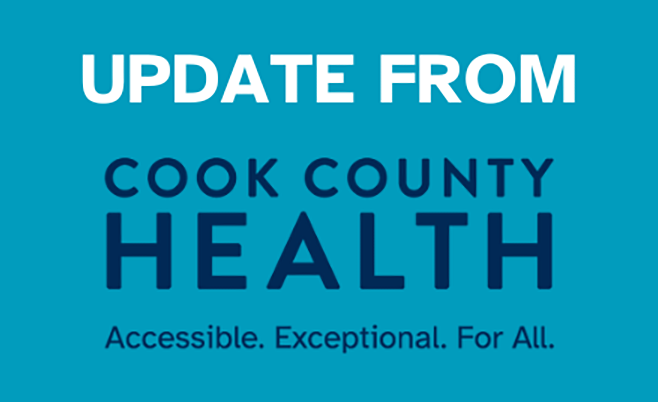The leaves are beginning to turn, the cooler days of fall are upon us and that could trigger asthma and allergy symptoms, especially for children who have returned to the classroom. Physicians at the Cook County Health say fall is a tough time for kids with asthma and allergies.
“We see more emergency room visits and admissions to the hospital for asthma in the fall than any other time of the year,” says Dr. James Moy, Director of the Division of Pediatric Allergy and Immunology. “Common allergy triggers, including ragweed and mold, increase in early fall; and children are back in close contact with one another passing around cold and respiratory viruses.”
Ragweed can be a problem until the first hard freeze. Mold that grows on dead leaves, vegetation and decaying wood is dispersed when lawns are raked or mowed. Burning leaves and other fires can further spread allergens and spew smoke that can make allergy and asthma symptoms worse.
The wide variation in temperature can also cause itchy eyes, sneezing, wheezing and coughing. High humidity during the lingering warm days we often have during the fall season can exacerbate the mold problem. Windy days further spread small pollen and mold spores. Cold air can cause airways to constrict, causing further respiratory challenges.
“Follow your individual asthma action plan. It’s very important for our patients with asthma to take their controller medications every day as prescribed and keep a rescue inhaler handy for any breakthrough symptoms,” says Dr. Denise Cunill, Associate Director of Ambulatory Pediatrics and Medical Director of the CCH Logan Square Health Center. “If you don’t recall your action plan or do not have access to controller medications please see your doctor now before the weather really changes. Also, be sure to update school forms on an annual basis and ensure your child has a rescue inhaler available at school.”
Treatment to control allergy symptoms before they trigger an asthma attack may include oral antihistamines, prescription steroids and eye drops or nasal rinses and irrigation.
When pollen and mold counts are high, those with allergies and asthma should stay indoors whenever possible. Keep windows closed and run air conditioner or heating units with HEPA filers. Also, run a dehumidifier in damp places to reduce mold. Cover mattresses and pillows with allergenic covers. Track daily local pollen and mold spores counts at www.aaaai.org.
Dr. Moy also suggest good hand washing practices to avoid catching upper respiratory viruses. And don’t forget to make sure the whole family gets their flu shots.
Contact your health provider to schedule an appointment or to find a pediatric CCH provider close to you, contact the CCH Patient Support Center at 1-312-864-KIDS.

